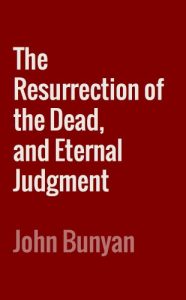Pilgrim’s Progress: Part 1: Content description.
John Bunyan’s classic, and in parts deeply moving, allegory of Christian’s hazardous journey from the City of Destruction to the Celestial City is everyone’s story, of those who arrive safely, of those who fail to last the distance, and of those who refuse or are afraid to start. It is a realistic picture of what is likely to confront those who set out on the Christian way. His experience and the characters he meets are true to life, and in them we can see a recognizable reflection of ourselves, and the kind of people, friends and enemies, we meet on our journey. The book was first written in 1678 for ordinary members of the congregational churches in the Bedfordshire area, with record sales. It is second only to the Bible in the number of editions, printings and translation, and is still being issued in its original form. The story is in itself a good yarn, but, more than that, it is intended to communicate important Christian truths in a memorable form. For modern readers, the message can be lost in a conscious effort to follow the unfamiliar language, though strictly speaking, is itself “modern” English, which is dated from about 1500. For this reason this version is called “contemporary” English. Read this way, it reveals the remarkable clarity of Bunyan’s thought and expression and makes his message more accessible.
John Bunyan (1628-1988) was born in Elstow, Bedfordshire, England, son of a tinker, and himself a tinker. He served in the Parliamentary army of Oliver Cromwell from 1944 to 1947. On his marriage, he attempted without much success, to amend his life, and was converted though overhearing a conversation on the street among some Christian women. The conversation was almost unintelligible to him at first, but eventually, after periods of alternating faith, depression and doubt, he came to assurance of the forgiveness of his sins by Christ. He began preaching among the congregational churches of his area. During the reign of Charles II (1616-1685), preaching without a license from the established Church of England was illegal, and Bunyan spent 12 years between 1660 and 1672 in Bedford jail, where he wrote Pilgrim’s Progress and other books. He traveled frequently to London. Characteristically, his last act was to ride to Reading to reconcile a young man to his father, who had threatened to disinherit him. On his way back to London, he was caught in heavy rain, contracted pneumonia, and died ten days later.
Bunyan was a man of singular gifts; he was a gifted preacher, a lucid theologian, a poet, and an able debater with scholarly objectors to his views. A contemporary wrote at the end of Bunyan’s autobiography:
“In him at once did three great worthies shine;
Historian, poet and a choice divine:
There let him rest in undisturbed dust,
Until the resurrection of the just”.
John Bunyan’s classic, and in parts deeply moving, allegory of Christian’s hazardous journey from the City of Destruction to the Celestial City is everyone’s story, of those who arrive safely, of those who fail to last the distance, and of those who refuse or are afraid to start. It is a realistic picture of what is likely to confront those who set out on the Christian way. His experience and the characters he meets are true to life, and in them we can see a recognizable reflection of ourselves, and the kind of people, friends and enemies, we meet on our journey. The book was first written in 1678 for ordinary members of the congregational churches in the Bedfordshire area, with record sales. It is second only to the Bible in the number of editions, printings and translation, and is still being issued in its original form. The story is in itself a good yarn, but, more than that, it is intended to communicate important Christian truths in a memorable form. For modern readers, the message can be lost in a conscious effort to follow the unfamiliar language, though strictly speaking, is itself “modern” English, which is dated from about 1500. For this reason this version is called “contemporary” English. Read this way, it reveals the remarkable clarity of Bunyan’s thought and expression and makes his message more accessible.
John Bunyan (1628-1988) was born in Elstow, Bedfordshire, England, son of a tinker, and himself a tinker. He served in the Parliamentary army of Oliver Cromwell from 1944 to 1947. On his marriage, he attempted without much success, to amend his life, and was converted though overhearing a conversation on the street among some Christian women. The conversation was almost unintelligible to him at first, but eventually, after periods of alternating faith, depression and doubt, he came to assurance of the forgiveness of his sins by Christ. He began preaching among the congregational churches of his area. During the reign of Charles II (1616-1685), preaching without a license from the established Church of England was illegal, and Bunyan spent 12 years between 1660 and 1672 in Bedford jail, where he wrote Pilgrim’s Progress and other books. He traveled frequently to London. Characteristically, his last act was to ride to Reading to reconcile a young man to his father, who had threatened to disinherit him. On his way back to London, he was caught in heavy rain, contracted pneumonia, and died ten days later.
Bunyan was a man of singular gifts; he was a gifted preacher, a lucid theologian, a poet, and an able debater with scholarly objectors to his views. A contemporary wrote at the end of Bunyan’s autobiography:
“In him at once did three great worthies shine;
Historian, poet and a choice divine:
There let him rest in undisturbed dust,
Until the resurrection of the just”.












